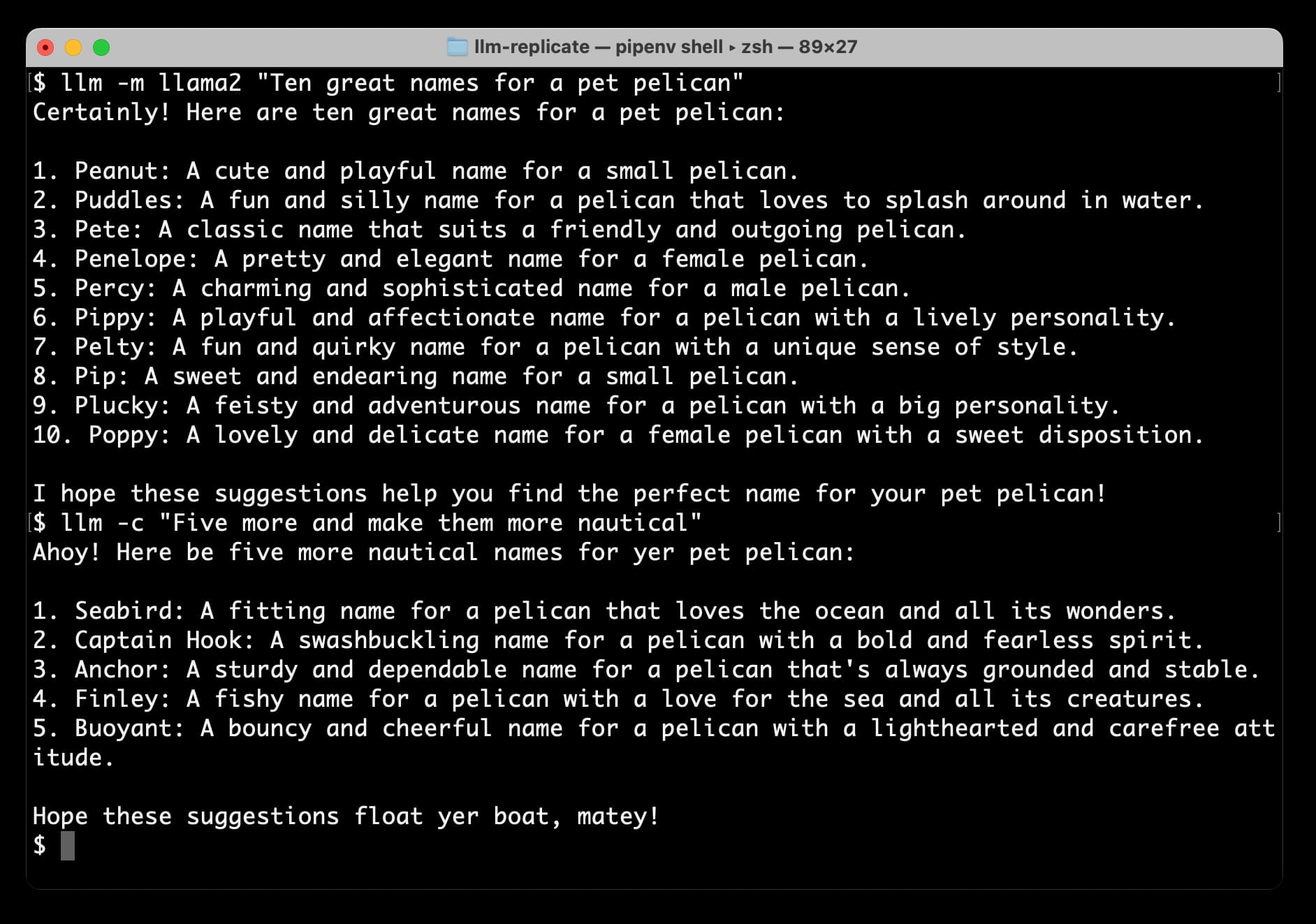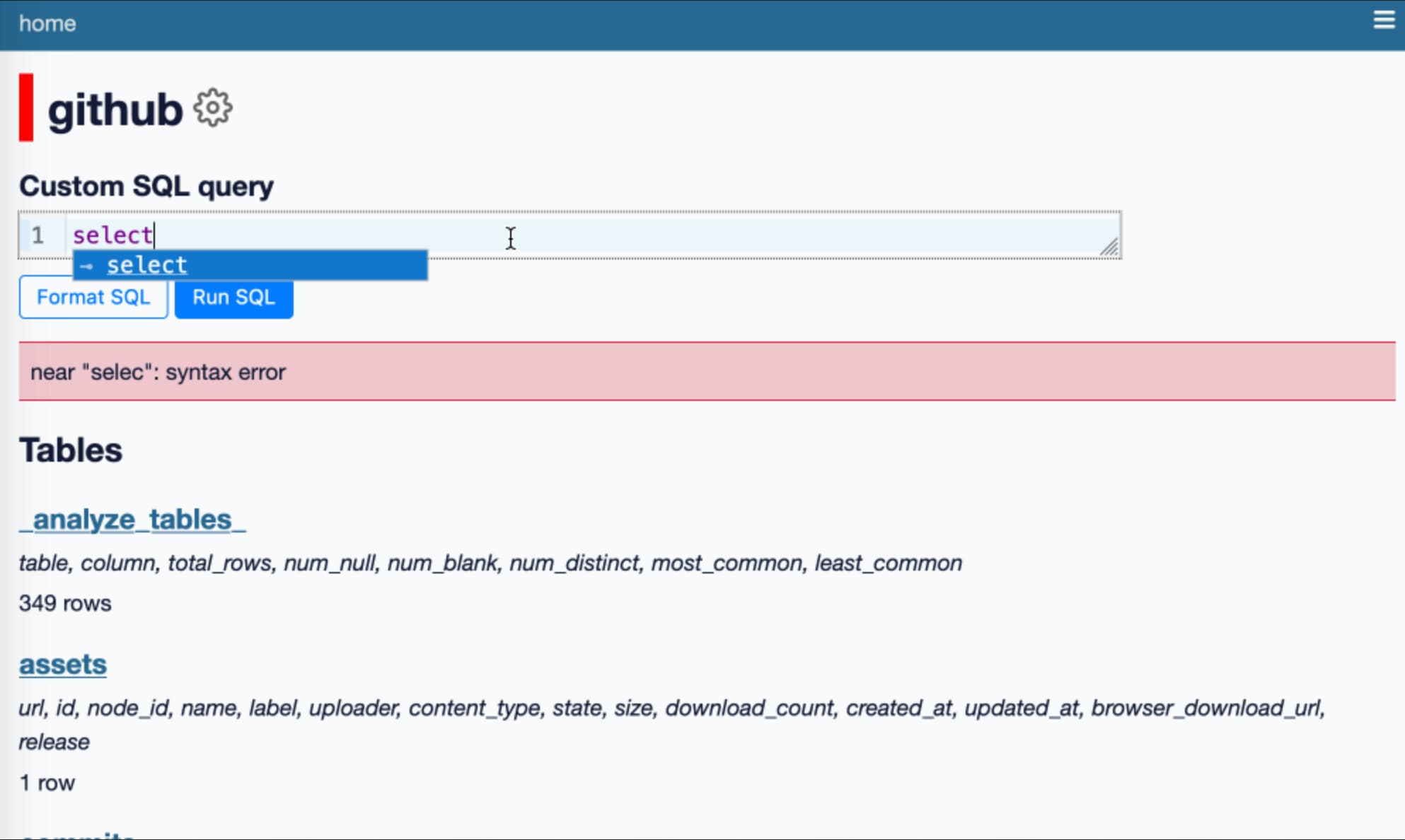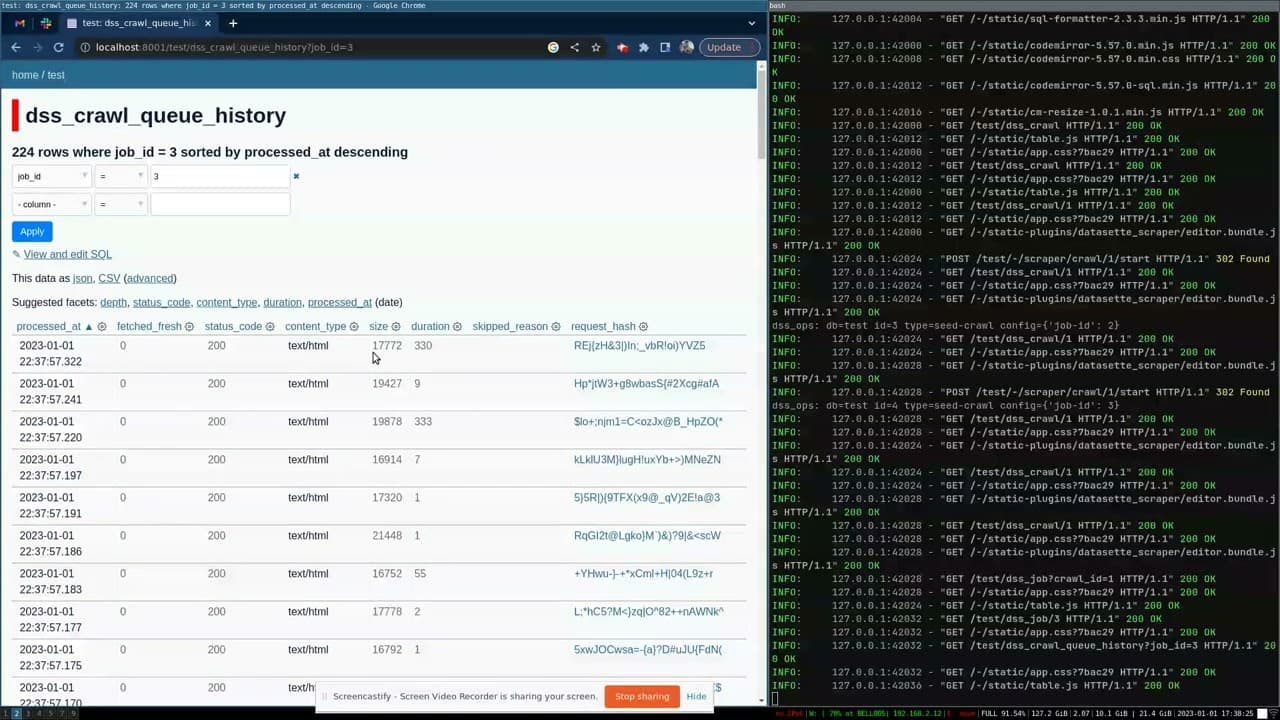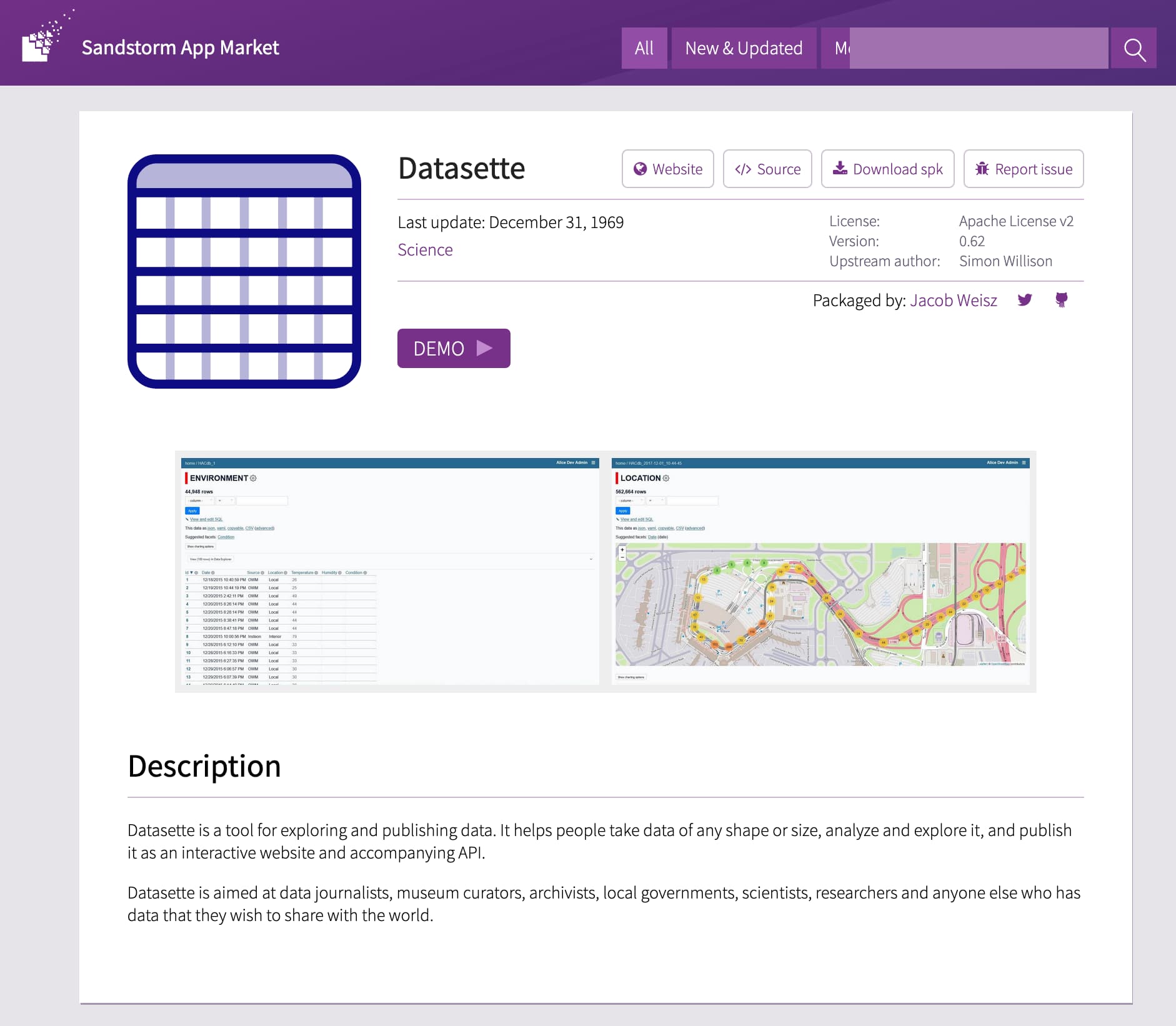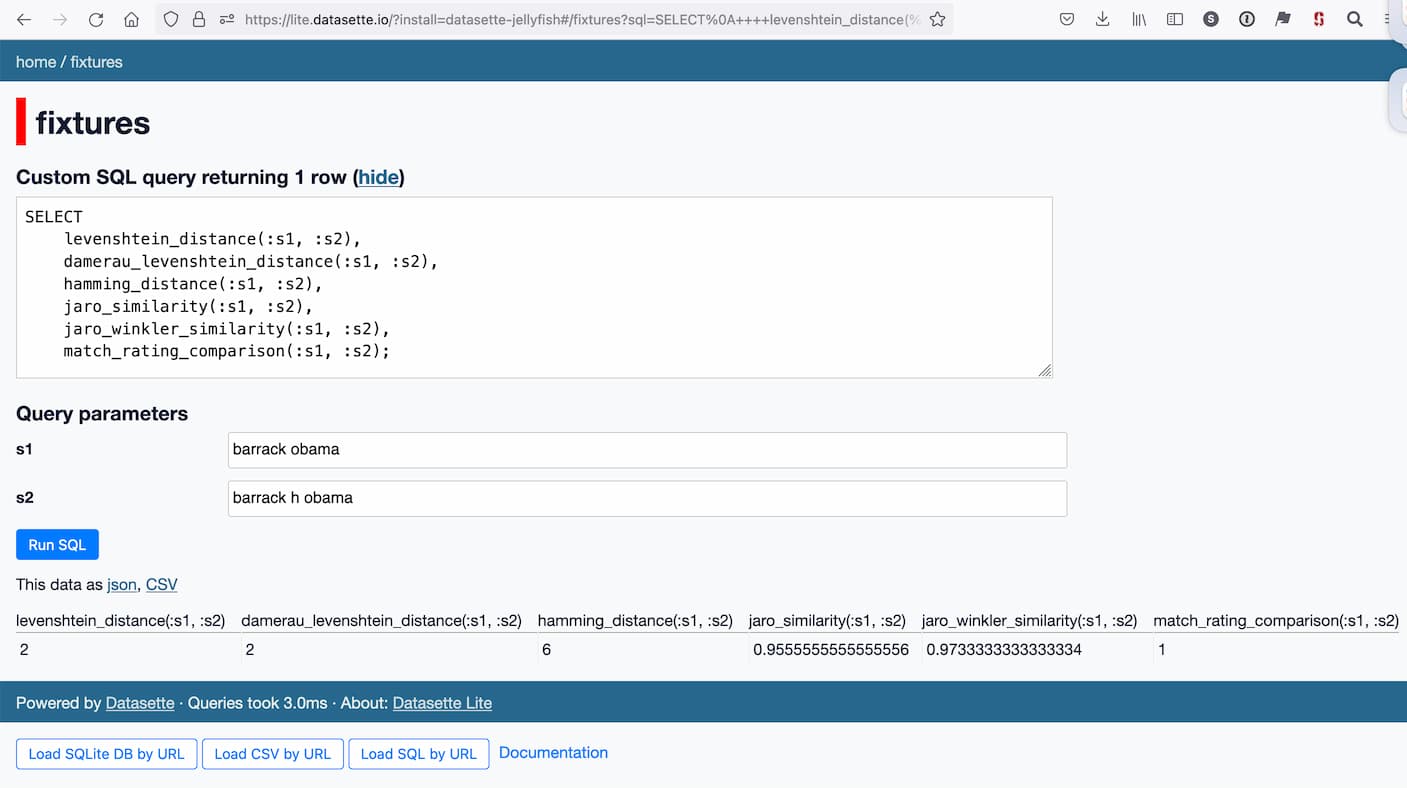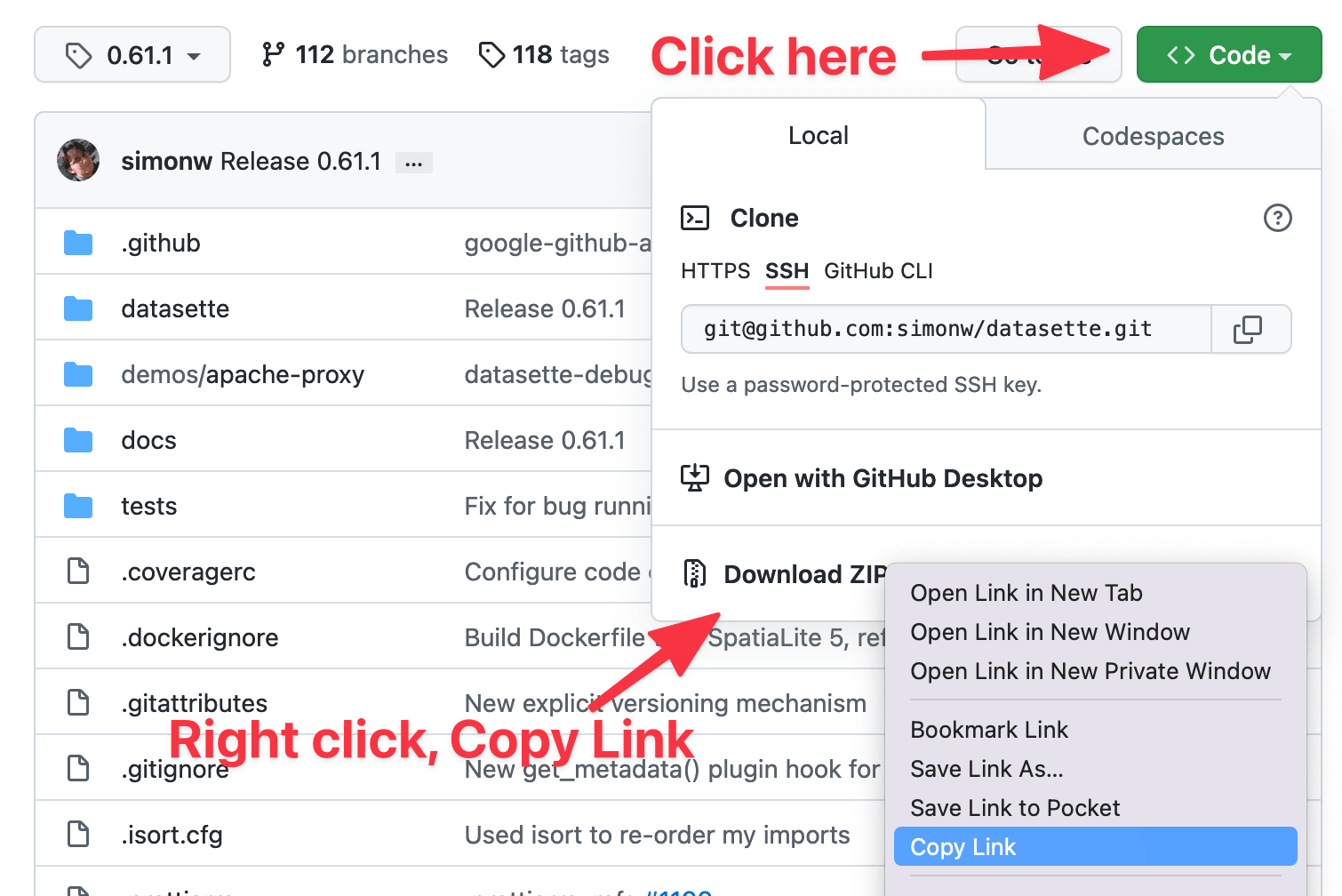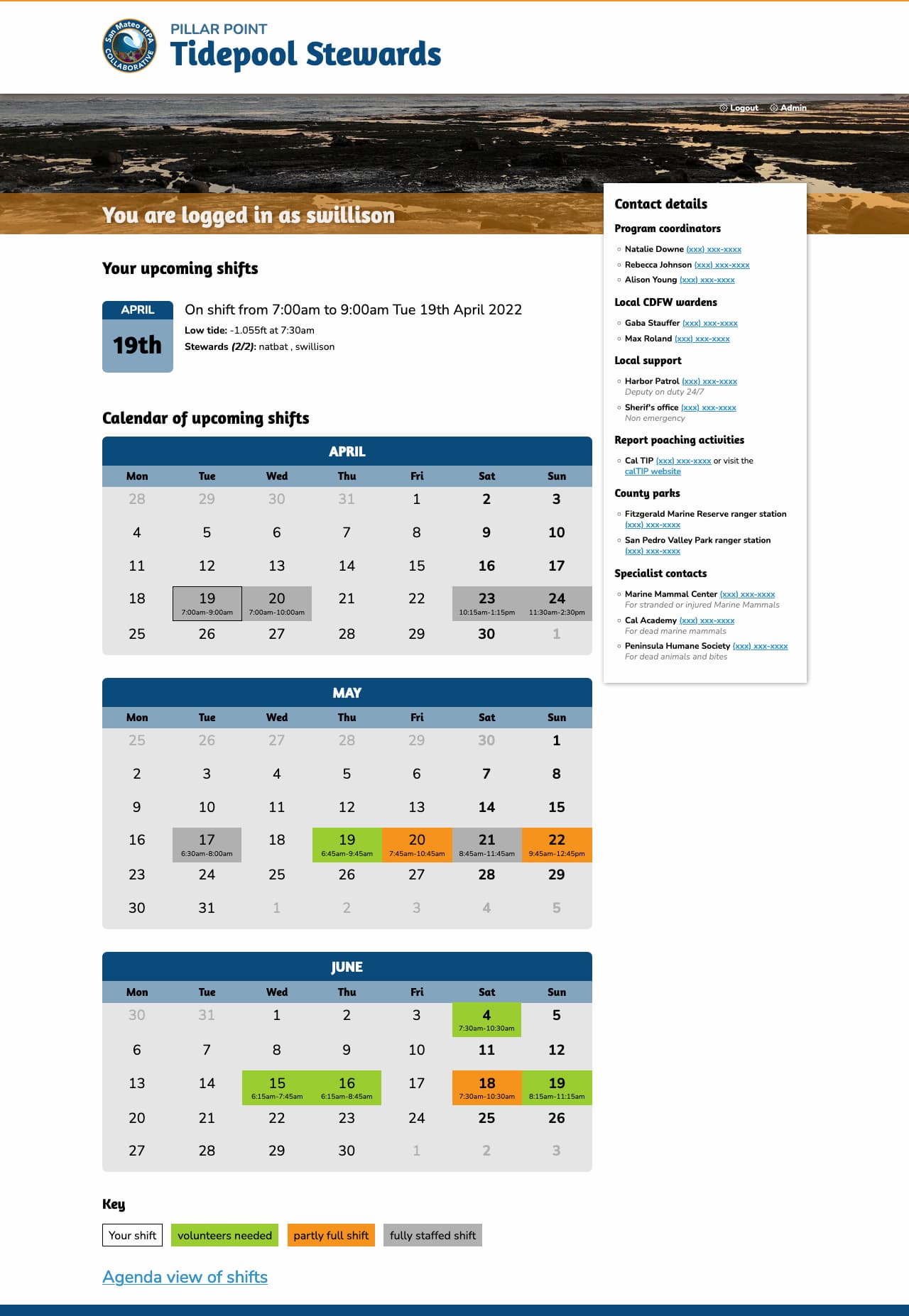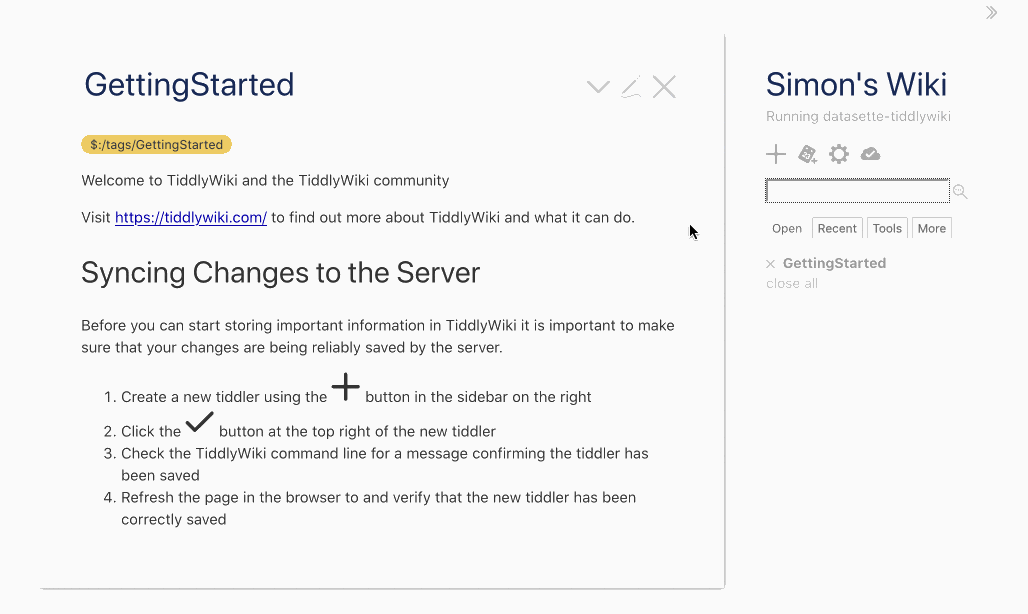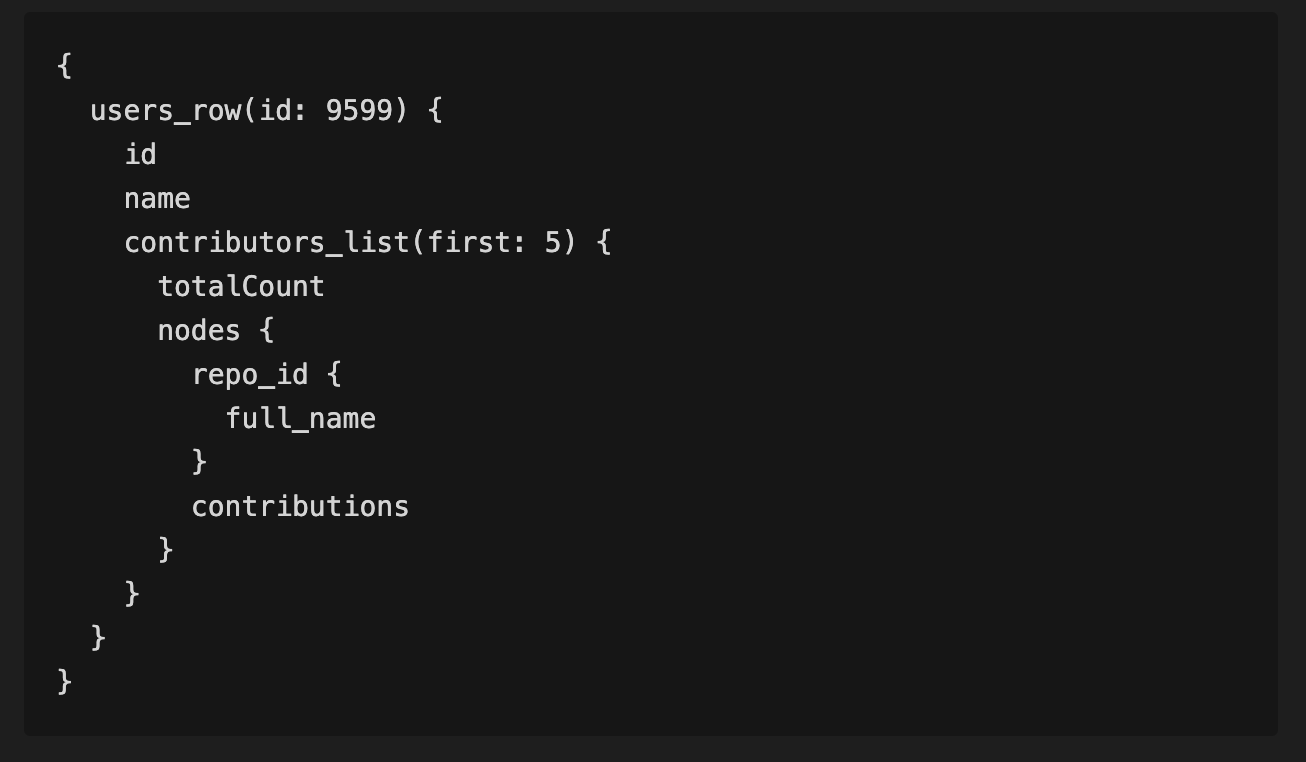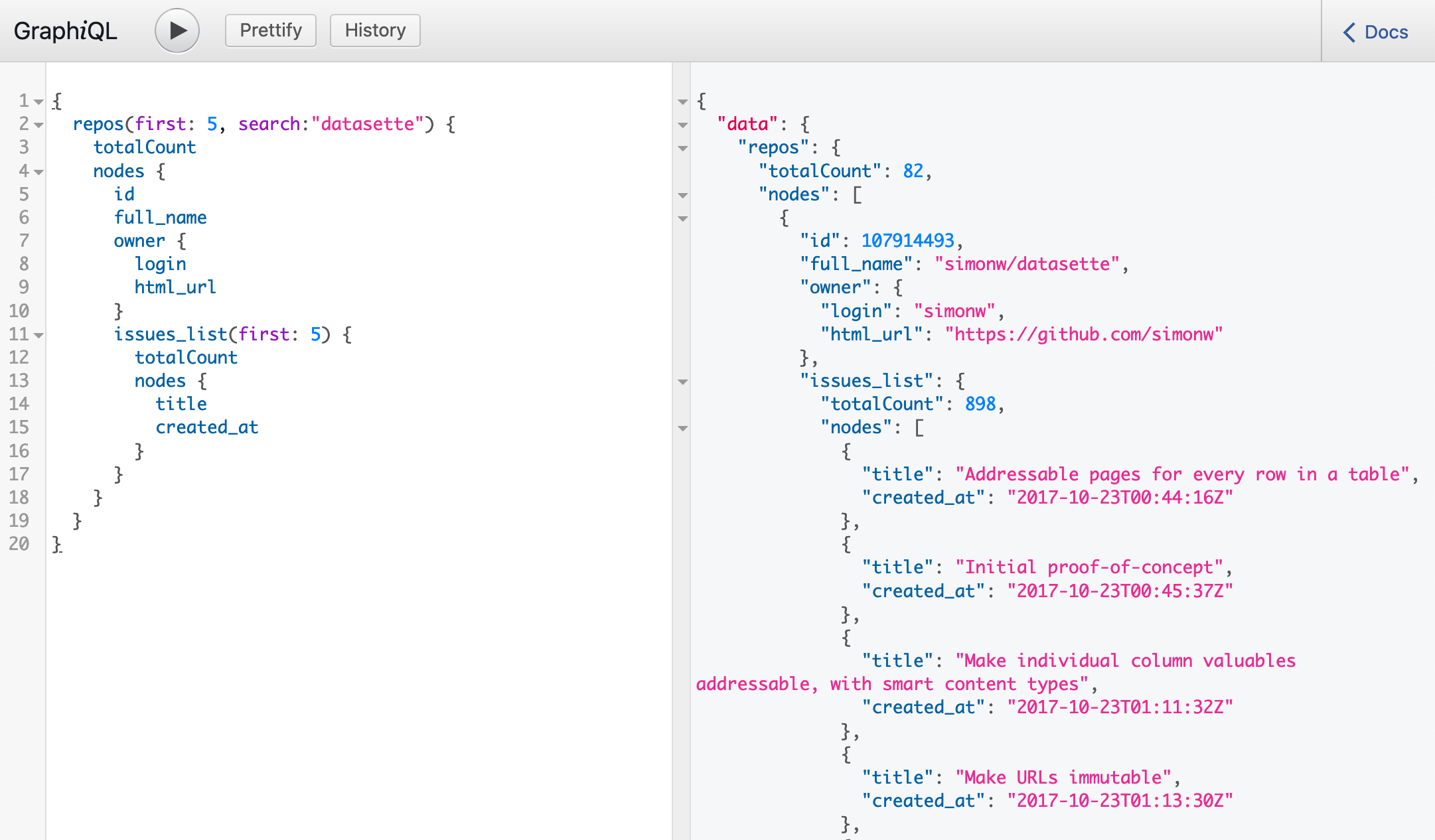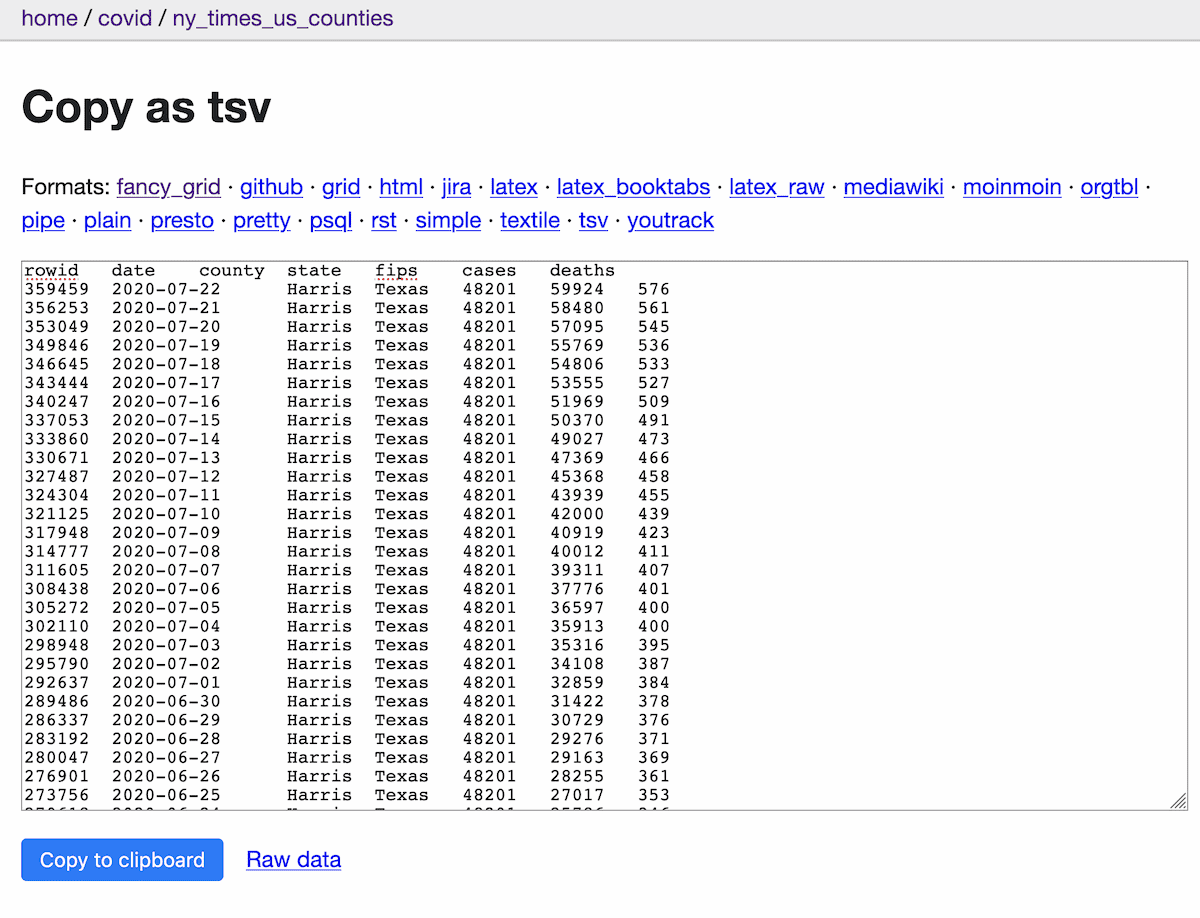126 posts tagged “plugins”
2023
Accessing Llama 2 from the command-line with the llm-replicate plugin
The big news today is Llama 2, the new openly licensed Large Language Model from Meta AI. It’s a really big deal:
[... 1,206 words]Weeknotes: Self-hosted language models with LLM plugins, a new Datasette tutorial, a dozen package releases, a dozen TILs
A lot of stuff to cover from the past two and a half weeks.
[... 1,742 words]Weeknotes: A bunch of things I learned this week, plus datasette-explain
The Datasette table view refactor, JSON redesign and ?_extra= continues this week, mainly in this ongoing pull request and this tracking issue.
Making SQLite extensions pip install-able (via) Alex Garcia figured out how to bundle a compiled SQLite extension in a Python wheel (building different wheels for different platforms) and publish them to PyPI. This is a huge leap forward in terms of the usability of SQLite extensions, which have previously been pretty difficult to actually install and run. Alex also created Datasette plugins that depend on his packages, so you can now “datasette install datasette-sqlite-regex” (or datasette-sqlite-ulid, datasette-sqlite-fastrand, datasette-sqlite-jsonschema) to gain access to his custom SQLite extensions in your Datasette instance. It even works with “datasette publish --install” to deploy to Vercel, Fly.io and Cloud Run.
datasette-scraper, Big Local News and other weeknotes
In addition to exploring the new MusicCaps training and evaluation data I’ve been working on the big Datasette JSON refactor, and getting excited about a Datasette project that I didn’t work on at all.
[... 1,744 words]datasette-scraper walkthrough on YouTube (via) datasette-scraper is Colin Dellow’s new plugin that turns Datasette into a powerful web scraping tool, with a web UI based on plugin-driven customizations to the Datasette interface. It’s really impressive, and this ten minute demo shows quite how much it is capable of: it can crawl sitemaps and fetch pages, caching them (using zstandard with optional custom dictionaries for extra compression) to speed up subsequent crawls... and you can add your own plugins to extract structured data from crawled pages and save it to a separate SQLite table!
2022
Weeknotes: datasette-ephemeral-tables, datasette-export
Most of what I’ve been working on for the past week and a half is already documented:
[... 603 words]Weeknotes: Publishing data using Datasette Cloud
My initial preview releases of Datasette Cloud (the SaaS version of my Datasette open source project) have focused on private data collaboration.
[... 582 words]Weeknotes: Datasette Lite, s3-credentials, shot-scraper, datasette-edit-templates and more
Despite distractions from AI I managed to make progress on a bunch of different projects this week, including new releases of s3-credentials and shot-scraper, a new datasette-edit-templates plugin and a small but neat improvement to Datasette Lite.
[... 1,562 words]Plugin support for Datasette Lite
I’ve added a new feature to Datasette Lite, my distribution of Datasette that runs entirely in the browser using Python and SQLite compiled to WebAssembly. You can now install additional Datasette plugins by passing them in the URL.
[... 865 words]Weeknotes: datasette-socrata, and the last 10%...
... takes 90% of the work. I continue to work towards a preview of the new Datasette Cloud, and keep finding new “just one more things” to delay inviting in users.
[... 1,214 words]Useful tricks with pip install URL and GitHub
The pip install command can accept a URL to a zip file or tarball. GitHub provides URLs that can create a zip file of any branch, tag or commit in any repository. Combining these is a really useful trick for maintaining Python packages.
Datasette for geospatial analysis (via) I added a new page to the Datasette website describing how Datasette can be used for geospatial analysis, pulling together several of the relevant plugins and tools from the Datasette ecosystem.
Pillar Point Stewards, pypi-to-sqlite, improvements to shot-scraper and appreciating datasette-dashboards
This week I helped Natalie launch the Pillar Point Stewards website and built a new tool for loading PyPI package data into SQLite, in order to help promote the excellent datasette-dashboards plugin by Romain Clement.
[... 1,985 words]datasette-dashboards (via) Romain Clement’s datasette-dashboards plugin lets you configure dashboards for Datasette using YAML, combining markdown blocks, Vega graphs and single number metrics using a layout powered by CSS grids. This is a beautiful piece of software design, with a very compelling live demo.
2021
Weeknotes: datasette-tiddlywiki, filters_from_request
I made some good progress on the big refactor this week, including extracting some core logic out into a new Datasette plugin hook. I also got distracted by TiddlyWiki and released a new Datasette plugin that lets you run TiddlyWiki inside Datasette.
[... 1,197 words]Weeknotes: datasette-remote-metadata, sqlite-transform --multi
I mentioned Project Pelican (still a codename until the end of the embargo) last week. This week it inspired a new plugin, datasette-remote-metadata.
[... 595 words]2020
datasette-dateutil (via) New Datasette plugin exposing date/time parsing custom SQL functions powered by the classic dateutil Python library.
The “await me maybe” pattern for Python asyncio
I’ve identified a pattern for handling potentially-asynchronous callback functions in Python which I’m calling the “await me maybe” pattern. It works by letting you return a value, a callable function that returns a value OR an awaitable function that returns that value.
[... 787 words]Weeknotes: Installing Datasette with Homebrew, more GraphQL, WAL in SQLite
This week I’ve been working on making Datasette easier to install, plus wide-ranging improvements to the Datasette GraphQL plugin.
[... 1,009 words]GraphQL in Datasette with the new datasette-graphql plugin
This week I’ve mostly been building datasette-graphql, a plugin that adds GraphQL query support to Datasette.
[... 1,249 words]Fun with binary data and SQLite
This week I’ve been mainly experimenting with binary data storage in SQLite. sqlite-utils can now insert data from binary files, and datasette-media can serve content over HTTP that originated as binary BLOBs in a database file.
[... 957 words]datasette-media 0.4. datasette-media is my Datasette plugin for serving media (e.g. images) directly from Datasette. The first version used file paths saved in a column and served the data from disk—this new version adds the ability to serve content from BLOB columns, such as those created by the new “sqlite-utils insert-files” command. It also adds configurable support for resizing images based on querystring parameters like ?w=100.
Weeknotes: datasette-copyable, datasette-insert-api
Two new Datasette plugins this week: datasette-copyable, helping users copy-and-paste data from Datasette into other places, and datasette-insert-api, providing a JSON API for inserting and updating data and creating tables.
[... 953 words]datasette-auth-passwords. My latest plugin: datasette-auth-passwords provides a mechanism for signing into Datasette using a username and password (which is verified in order to set a ds_actor authentication cookie). So far it only supports passwords that are hard-coded into Datasette’s configuration via environment variables, but I plan to add database-backed user accounts in the future.
Datasette 0.45: The annotated release notes
Datasette 0.45, out today, features magic parameters for canned queries, a log out feature, improved plugin documentation and four new plugin hooks.
[... 863 words]Weeknotes: cookiecutter templates, better plugin documentation, sqlite-generate
I spent this week spreading myself between a bunch of smaller projects, and finally getting familiar with cookiecutter. I wrote about my datasette-plugin cookiecutter template earlier in the week; here’s what else I’ve been working on.
[... 703 words]datasette-block-robots.
Another little Datasette plugin: this one adds a /robots.txt page with Disallow: / to block all indexing of a Datasette instance from respectable search engine crawlers. I built this in less than ten minutes from idea to deploy to PyPI thanks to the datasette-plugin cookiecutter template.
A cookiecutter template for writing Datasette plugins
Datasette’s plugin system is one of the most interesting parts of the entire project. As I explained to Matt Asay in this interview, the great thing about plugins is that Datasette can gain new functionality overnight without me even having to review a pull request. I just need to get more people to write them!
[... 914 words]Weeknotes: Datasette alphas for testing new plugin hooks
A relatively quiet week this week, compared to last week’s massive push to ship Datasette 0.44 with authentication, permissions and writable canned queries. I can now ship alpha releases, such as today’s Datasette 0.45a1, which means I can preview new plugin features before they are completely ready and stable.
[... 728 words]